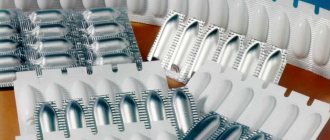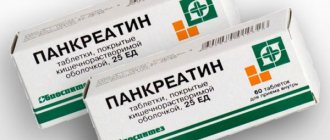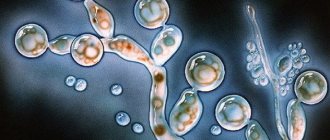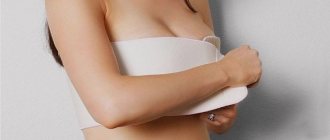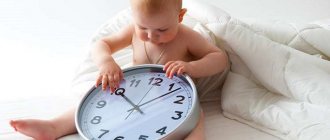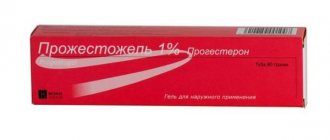Often a young mother experiences fever during lactation. What antipyretic drugs are indicated for mothers during breastfeeding? Below are tips and recommendations from leading pediatricians, therapists and gw consultants.
Fever during breastfeeding does not require weaning the baby from the breast; it is enough to choose the right and safe antipyretic drug for a nursing mother.
Medicines to reduce fever
The mother's immune system weakens during breastfeeding, and the risk of infectious and viral diseases increases. Also, after childbirth, complications may arise due to inflammation of scars, organs of the genitourinary system, stagnation of milk, and other things. One of the symptoms that accompanies such diseases is an increase in body temperature. Despite the different reasons, readings of 38.5 degrees and above are reduced by antipyretic drugs.
Paracetamol
This non-steroidal anti-inflammatory drug simultaneously has anti-inflammatory, antipyretic, and analgesic effects. When consumed, it does not irritate the intestinal mucosa. When penetrating into milk (up to 25%), it does not have a dangerous effect on the infant.
The permissible dose at one time is 500 mg, the next tablet or capsule can be taken after 6 hours. The maximum norm per day is 4 g. The duration of the course is up to 7 days, after which the risk of impaired kidney and liver function increases.
Paracetamol analogs include Panadol, Rapidol, Milistan, which contain a similar active ingredient. The difference lies in the addition of excipients, the speed of the drug’s effect on the body, and the pricing policy.
Before taking an antipyretic drug, you should definitely consult a doctor in order to avoid allergic reactions and the dangerous effect of the drug on the child’s body.
Ibuprofen
Ibuprofen acts on the body when the temperature rises like paracetamol - it relieves inflammation, reduces temperature, relieves pain, and eliminates body aches.
The drug is available in tablets of 200 and 400 mg. The course of treatment ranges from 1 to 3 weeks. Up to 4 tablets of 200 mg are allowed per day. When increasing the dosage, it is necessary to stop lactation.
An overdose of the drug may cause side effects such as dizziness, nausea, diarrhea, sleep disturbances, skin rash, and Quincke's edema.
In pharmacies you can find analogs of Ibuprofen based on the active substance:
- Ibufen – suspension for oral administration;
- Ibuprom – tablets of 200 and 400 mg;
- Nurofen - fast-acting tablets. It is important to remember that the drug in the form of syrup with various flavoring additives is prohibited during lactation.
It is recommended to take the medicine after feeding the baby, then by the next stage of the child's meal the maximum concentration of the medicine will decrease.
Click here
Rectal suppositories
When breastfeeding, pediatricians advise lowering the temperature with the help of suppositories that do not cause stomach irritation, are comfortable to use, and the active substance does not penetrate into mother's milk.
Antipyretic suppositories have a long-lasting effect (from 4 to 6 hours) compared to tablets. The safe period of use is limited to three days.
What tools can be used:
- Paracetamol;
- Cefekon;
- Ibuprofen;
- Nurofen.
The drug should be administered after bowel movement.
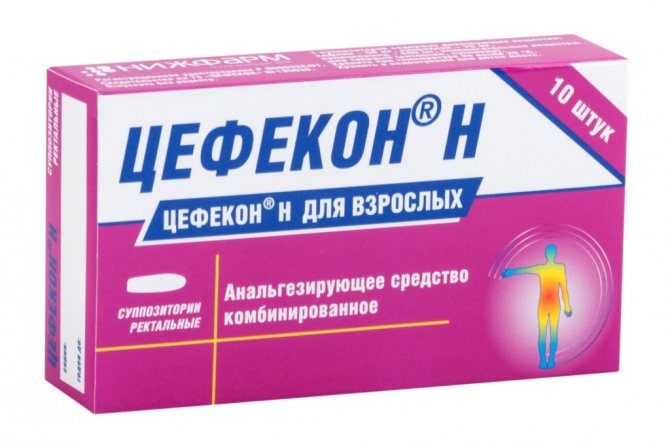
When using suppositories, you must read the instructions in the package and consult your doctor.
Reducing the temperature of a nursing mother without harming the baby
Antipyretics can be taken during lactation. But not all drugs are suitable for nursing mothers. Taking safe medications once is not harmful. It is much worse if a nursing woman endures a high temperature or brings it down with dangerous folk remedies.
Finding out the reason
An increase in body temperature in a nursing mother may be normal or a sign of pathology. Often it is not possible to determine the cause of hyperthermia on your own. Only a doctor will make an accurate diagnosis and prescribe adequate treatment.
When breastfeeding, you should be especially careful about your health. In most cases, fever is not a reason to cancel lactation. But some conditions will be grounds for weaning the baby. Therefore, a nursing mother must definitely find out the cause of hyperthermia, and not just take antipyretics.
Temperature almost always rises during the postpartum period. Within 1-2 days after natural birth, the thermometer readings are higher than normal. If there was a caesarean section, then the elevated temperature lasts longer.
At the beginning of breastfeeding, the indicator in the armpit is always high. This is due to lactation. Therefore, if a nursing mother measures her temperature in the usual way, she will find that the readings are too high.
It would be more correct to place the thermometer in the elbow or mouth.
In addition to natural causes of fever during breastfeeding, a nursing mother may have diseases. Reasons for rising temperature:
- viral infections;
- bacterial infections;
- fungal infections;
- diseases of the central nervous system;
- mental disorders;
- lactostasis;
- mastitis;
- complications after childbirth;
- exacerbation of chronic diseases.
Permitted and prohibited drugs for fever during hepatitis B
Before drinking an antipyretic while breastfeeding, you need to clearly understand the principle of its action. The medicine relieves fever and makes you feel better. Many drugs have analgesic and anti-inflammatory effects.
They cope well with the ailment, but do not at all affect its cause. If a woman has a cold, antipyretics will not speed up recovery in any way. Such drugs are symptomatic. They last from 4 to 12 hours.
Breastfeeding mothers are not recommended to take medications on their own. Most pharmaceutical products are contraindicated during breastfeeding. The active substances penetrate into the general bloodstream and enter breast milk.
But if you can’t do without antipyretics, then you need to choose only proven remedies approved for the child. From the first days of life, babies are prescribed paracetamol and ibuprofen when they have a fever. These medications have been tested multiple times and are found to be safe.
A breastfeeding mother needs a drug based on these active ingredients. You can take antipyretics, which contain two components at once.
In pharmacies, medications containing paracetamol and ibuprofen are sold under different trade names:
- Paracetamol;
- Cefekon;
- Panadol;
- Efferalgan;
- Calpol;
- Ibuklin;
- Ibuprofen;
- Nurofen;
- Dolgit;
- Faspik and others.
Aspirin is strictly prohibited for breastfeeding. This medicine is very dangerous for the baby. Therefore, a nursing mother should not take any fever pills other than ibuprofen and paracetamol.
How to reduce fever without medications
With hepatitis B, women are afraid to take medications and often use folk remedies for fever. It is believed that grandmother's recipes are safer than traditional medicines. However, this is not always true. Many herbal-based folk remedies can harm a baby more than a Paracetamol tablet. In general, you need to be careful with herbs, especially during breastfeeding.
Grandmothers advise to relieve the heat with tea with raspberry jam. Vitamin C really helps with colds and increases the body's resistance. But after heat treatment, almost no useful substances remain in raspberries. In addition, it can cause allergies. You can treat yourself with honey and other bee products. They are useful, but dangerous because they are strong allergens.
Safe methods of dealing with fever for nursing mothers:
- Drink plenty of fluids. At high temperatures, the body loses moisture. Therefore, you can lower your thermometer readings a little by drinking plenty of fluids. In addition, when dehydrated, antipyretic drugs do not work well. Drinking plenty of fluids also helps fight infection because fluids flush out toxins from the body.
- Rubdowns and compresses. Rubbing will help reduce the temperature by half a degree. You cannot use vinegar or alcohol solutions for this. You can wipe your body only with plain water. It is necessary to pay attention to the areas where large blood vessels pass - in the neck, armpits, groin and elbow.
- Cool bath. If the fever is difficult to reduce, a cool bath will help. The water temperature should be 37-38 degrees. If you lie in such a bath, your body temperature will become the same. But we must remember that for some diseases, swimming is undesirable.
Is it possible to continue feeding?
There is an opinion that if you have a fever you should not breastfeed your baby. You can even come across information that colds are transmitted through breast milk. This is completely absurd. With hyperthermia, it is most often not necessary to wean the child from the breast.
Moreover, if the mother has a viral infection, she will pass on essential antibodies to the baby with her milk. They will protect the baby from infection. Breast milk does not lose its beneficial properties at temperature, it does not burn out and does not become “empty”.
Therefore, it is possible and necessary to continue breastfeeding.
Sometimes mothers boil their milk at a temperature and give it to the baby from a bottle. This is a pointless procedure, since most diseases are not transmitted through breast milk. When heated, it loses its beneficial properties.
In isolated cases, breastfeeding has to be stopped. You cannot continue lactation if hyperthermia is caused by:
- tuberculosis;
- HIV;
- sepsis;
- herpes virus with localization of blisters on the mammary gland;
- mental disorders;
- breast abscess;
- hepatitis B and C.
Breastfeeding is allowed even when taking antipyretic medications. To reduce the effect of the medicine on the child, you need to take the tablets before the next feeding.
The volume of active substance in the blood will be maximum 10-30 minutes after taking the tablets. If the mother drinks the medicine and immediately feeds the baby, then by the next feeding (after 3-4 hours) the volume of the drug in the body will be halved.
This way the baby will receive a small dose of the medicine, and the mother’s treatment will not affect the baby.
Source: https://ProGrudnoe.ru/mama-zabolela/zharoponizhayushhee-pri-grudnom-vskarmlivanii.html
What drugs are not recommended during lactation?
To reduce the temperature during hepatitis B, you need to use only proven safe antipyretics.
Aspirin
Aspirin should be used during lactation with great caution and only if there is no safe alternative. If acetylsalicylic acid is regularly introduced into a child's body, it can cause damage to the liver and brain.
If the child is also sick when the mother’s temperature rises (ARVI, etc.), then Aspirin can worsen the baby’s condition. Additionally, the risk of bronchial asthma, damage to the intestinal mucosa, diathesis, and decreased blood clotting increases.
Powders and teas for colds
It is not recommended to use advertised powders during lactation - Fervex, Mefenominka, Coldrex. The instructions indicate that taking such drugs during lactation is prohibited. A one-time is allowed if safe drugs are not available.
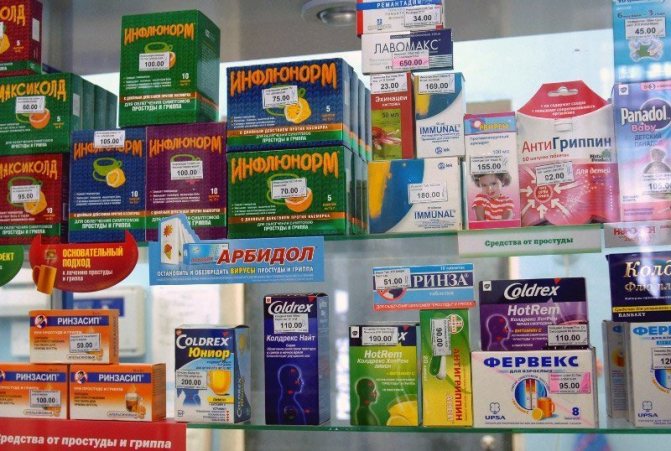
The use of soluble powders against flu and colds is not recommended for nursing mothers; they should be used only in case of emergency and there are no other remedies at hand.
The composition of the above antipyretic medications has not been studied, there is a high probability of side effects in a child - rash, skin irritation, nausea, headaches, diarrhea, swelling of the throat.
What antipyretic can a nursing mother use?
Elevated levels on the thermometer are a signal that not everything is in order in the body. If a nursing mother’s temperature rises, first of all they need to find out how much time has passed since birth. If the period is less than 6 weeks, it is quite possible that hyperthermia is associated with inflammation of the genitourinary tract or poorly healing scars.
If such postpartum complications have been identified, the woman must seek help from an antenatal clinic, or better yet, from the doctor who delivered the baby.
However, postpartum complications are not the only reason why a new mother may have a fever. Jumps can be due to the development of diseases such as:
- Lactostasis, mastitis. In the first case, one or more milk ducts become clogged, causing milk to not flow out normally. The chest becomes stone-like, a feeling of fullness and redness appears. If congestion is not removed within 3 days, another disease develops against it - mastitis, characterized by an inflammatory process in the mammary gland. Temperature ranges from 38 to 40 O C.
- ARVI. In the first months, when a woman practically does not go to public places, the risk of getting sick is low. But if this happens, it is important to remember the symptoms: temperature above 38 OC, sore throat, runny nose with congestion or sneezing. It is important for a nursing mother to stay in bed, drink a lot, and take antipyretics if necessary.
- Intestinal infections. In addition to fever, the most common symptoms are diarrhea with vomiting. The doctor usually recommends taking sorbents, dietary nutrition and other treatment depending on the infection.
In all these cases, an increase in temperature is a symptom of the disease, a signal that there is a problem and the body is trying to solve it. When certain levels are reached, interferons (internal infection fighters) begin to be produced, so it is not recommended to lower the temperature below 38.5 degrees.
Still, the mother should know which antipyretic is allowed during breastfeeding and have it in her medicine cabinet. What can she take during her illness?
How to lower the temperature
If we talk about medications for fever, then the mother needs to choose, first of all, those medications that are compatible with breastfeeding, which means they will not harm the baby. You can find out about the compatibility of the drug with breastfeeding from its official instructions, as well as from the Thomas Hale reference book and the electronic reference book called E-LACTANCIA.
Let's look at the safest, most studied and most common medications for fever allowed during lactation.
Aspirin
But what about, for example, your favorite acetylsalicylic acid, known as aspirin? The drug perfectly reduces the temperature, but! According to the E-LACTANCIA directory, you should take aspirin only in emergency situations, when the temperature is off the charts, and it’s night outside, the nearest pharmacy is three miles away and there is nothing more suitable at hand.
Aspirin is known to have a toxic effect on the liver and brain in children (Raye's syndrome). By the way, information for the future: in case of a viral infection, it doesn’t matter whether it’s commonplace FLU or chickenpox, it is strictly forbidden to give children Aspirin.
Powders and teas for colds
There are also combination medications in the form of soluble powders for colds. They usually contain an antipyretic (paracetamol or acetylsalicylic acid), vitamin C, and an antihistamine (constricts blood vessels, thereby facilitating nasal breathing).
What can I say, if the mother is really ill, and there is nothing else to lower the temperature, then one-time use of such drugs as Fervex, Pharmacitron, Coldrex is acceptable.
However, it should be remembered that such a cocktail is not just one well-studied component, but a product with many unknowns, and the likelihood of adverse reactions in a child increases.
Therefore, it is better not to experiment with teas during lactation.
Despite the fact that such powders perfectly eliminate cold symptoms, they are far from the best choice during the lactation period
Algorithm of actions at temperature
So, what tactics should a nursing woman follow if she has a fever?
Here are the step-by-step instructions:
- Find out the reason. Fever is a symptom. To recover, you need to look for the cause.
- Don't worry about feeding. At elevated temperatures, nothing happens to the milk; it is still beneficial for the baby, so fever is not a reason for weaning.
- Make sure the temperature is measured correctly. During breastfeeding, many processes occur in the breast, a whole milk production factory operates, which means more heat is released. Therefore, in the axillary area there may be 37.2 OC, and this is normal. It is better to measure the temperature under the armpit after feeding, after wiping it dry.
- Drink enough. If you have a fever, it means that your body will soon experience or already have a deficiency of fluid, which thickens the milk, thereby complicating its outflow. Add 2-3 glasses of water to your daily intake.
- If the thermometer shows above 38-38.5 OC and you feel unwell, take an antipyretic drug allowed during breastfeeding. Then you won’t have to adjust your feeding regimen.
Well, we found out that high temperature is not an indication for stopping breastfeeding, it is temporary and, fortunately, there are medications that are approved for lactation and help alleviate the condition. Only if the fever does not subside within 3 days, do not forget to consult a doctor.
Source: https://floragaz.ru/mamam/kakoe-zharoponizhayushchee-mozhno-kormyashchey-mame
Procedure for temperature
To improve the mother’s condition and not harm the baby, it is important to find out the cause of the high temperature. During feeding, the nursing mother’s body temperature rises to 37.2, which is not dangerous and is normal.
It is recommended to measure the temperature in the elbow to accurately record the readings. You can use your armpit, but only after feeding, wiping the cavity dry with a towel.
It is necessary to take measures to reduce the temperature when the readings exceed 38.5 degrees. If the value is below this mark, you should not take medications, because the body independently fights pathogenic bacteria.
Step-by-step actions at temperature:
- bed rest;
- drinking enough fluids - compotes, fruit drinks, teas - to avoid dehydration. Drink 150 ml of liquid every 30 minutes;
- take a safe antipyretic - Ibuprofen, Paracetamol;
- cover yourself with a warm blanket - sweat;
- cold compress on the forehead (gradually reduces fever);
- monitor the temperature (do not exceed 19-20 degrees) and humidity in the room;
- eat food as desired, do not overload the intestines. Consume vegetables, fruits, light soups, broths and cereals.
Komarovsky recommends wiping with vinegar (a weak solution) or cool boiled water. Pay special attention to the areas of the abdomen, groin, head, legs, arms. After the procedure, cover yourself with a sheet.
During a cold, tea with raspberry leaves or jam will be beneficial. This is a natural antipyretic that can replace pharmaceutical drugs. Add honey or lemon to the cup (after 3-4 months from the birth of the baby). A decoction of currant leaves, mint, and linden blossom is also useful. Drink in small portions, as the fees increase lactation.
A useful remedy for colds after the fever has been eliminated is mustard foot baths. Carry out the event before going to bed, be sure to put on woolen socks and wrap your feet in a blanket afterwards. It is recommended to drink a cup of warm tea with honey and dried fruits (if the baby is not allergic to the product).
If you refuse to feed your baby during illness, it is important to express in order to maintain lactation.
Should I stop feeding if I have a fever?
An increase in body temperature during lactation indicates the occurrence of an inflammatory process in the mother's body. If such symptoms appear, it is important not to self-medicate, but to visit a doctor to establish a diagnosis.
Nothing happens to mother's milk at high temperatures. Milk is formed from blood and lymph, where viruses do not penetrate. It is important to continue feeding as normal to avoid lactostasis. This is one of the safest ways to “transport” protective antibodies into the child’s body.
Fever during breastfeeding is not an indication for weaning a child. It is important to simply use safe antipyretic drugs to get rid of the disease and not harm the baby.
